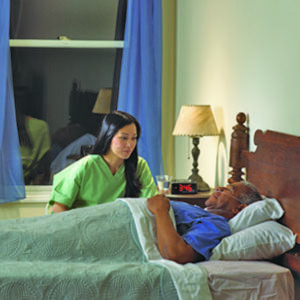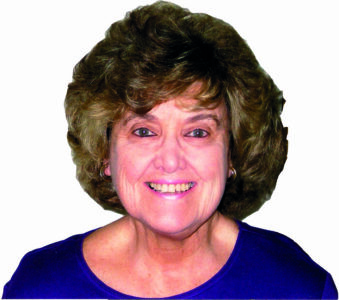Euthanasia or Letting Go?
In the past number of years, there have been numerous essays concerning euthanasia in the Marist Messenger, rightly so, because it is a critically important topic. The authors stressed the dangers of legal euthanasia proliferating across the world and thus becoming a norm. In the September 2015 issue of Marist Messenger, an Australian expert stated that “Euthanasia is a dangerous radical shift in society’s foundational values.” The March 2018 issue of the Messenger states that “70% of New Zealanders favoured legalised euthanasia.”
The same is true in the United States. Many states and countries have already approved legalised euthanasia. A number of years ago, when Dr. Jack Kevorkian of the United States began participating in physician assisted suicide, many people were horrified. Others were saying that it was about time someone was ready to help the terminally ill and dying patients. The controversy raged, and it still does, but now it seems that the legalisation of physician assisted suicide (PAS) and euthanasia is gaining steam. The increase in requests for euthanasia does appear to be a dangerous trend. I am grateful that Marist Messenger has been in the forefront of addressing the issue.
We must now consider making concrete suggestions about how to address end-of-life issues and the complexities involved. Where do we go from here?
Unfortunately, most people don’t even contemplate even the possibility of these decisions until the situation is upon them. This state of affairs is, I believe, a real challenge to society. The main issue, I think, is that we as a society do not allow people to die well. I do believe that there are better options available for patients and families without implementing PAS or euthanasia. In almost all cases, the goal of treatment is to cure and our institutions and our medical care is directed to this end. Bishop McGann of the diocese of Rockville Centre, New York, stated, “Sometimes, in our desperate attempt to save our loved ones, we abandon them to too much treatment and technology where they are endlessly subjected to medical interventions over which they have no control.”
Thankfully, the medical profession has been making some moves towards educating patients and families about end-of-life issues. Articles and books inundate the bookstores, and palliative care, which is focussed on providing relief from the symptoms and stress of an illness, is a new area of expertise. Additionally, palliative care often leads a patient to hospice care, which is comfort care at the end of life. In my opinion, this emphasis on relieving symptoms and providing emotional and spiritual support will help to alleviate the requests for euthanasia.
But, the medical community cannot do it alone. How do we, as communities of faith, help people to think about the specifics of end-of-life decisions? Our parishes and dioceses must accept the challenge of educating people about end-of-life issues. Many parishes already have ‘Respect Life’ committees but it seems to me that these committees are dedicated solely to the abortion issue. I know that this is the case in my parish. In fact, my parish logo for the Respect Life committees is an adult hand holding two tiny feet. How does this allow for the exploration of the spirituality of death and dying? While I certainly believe that abortion is a critical area of discussion, I also believe that respecting life is not limited to abortion. Cardinal Bernadin once described the life issue as a “seamless garment,” meaning that all aspects of life are critically important. This education can start as a grass roots parish movement which will hopefully expand across to the neighbouring parishes and then to the diocese. It would be wonderful if it started at the diocesan level, but it must start someplace.
 The demand for euthanasia is a sign that we are failing as a community. We have lost our faith and trust in the words of Christ that promise everlasting life. We are also failing in our commitment to be companions to one another, especially to those who are in the throes of the final journey. If we, as a Catholic Christian community, want to stand against euthanasia, then we have a responsibility to provide the support structures and skills needed to help one another, especially at the end of life. Euthanasia is a death-oriented solution to the problems of how to care for the dying. The challenge to the Catholic Christian community is to show the dying that they have not been abandoned by the human community, the medical community, or by God.
The demand for euthanasia is a sign that we are failing as a community. We have lost our faith and trust in the words of Christ that promise everlasting life. We are also failing in our commitment to be companions to one another, especially to those who are in the throes of the final journey. If we, as a Catholic Christian community, want to stand against euthanasia, then we have a responsibility to provide the support structures and skills needed to help one another, especially at the end of life. Euthanasia is a death-oriented solution to the problems of how to care for the dying. The challenge to the Catholic Christian community is to show the dying that they have not been abandoned by the human community, the medical community, or by God.
The euthanasia debate is basically about the nature and the meaning of human life. As such, it calls for spiritual vision. Therefore, I believe that we, as a Catholic Christian community, must do all we can to empower, educate and support patients and families within the framework of our rich tradition. Death and dying, with all its human sadness and loss, is but a transition to ultimate union with God. It is total integration rather than disintegration, and we all have a mandate to spread the good news.
It can start with a parish committee.


 Entries(RSS)
Entries(RSS)